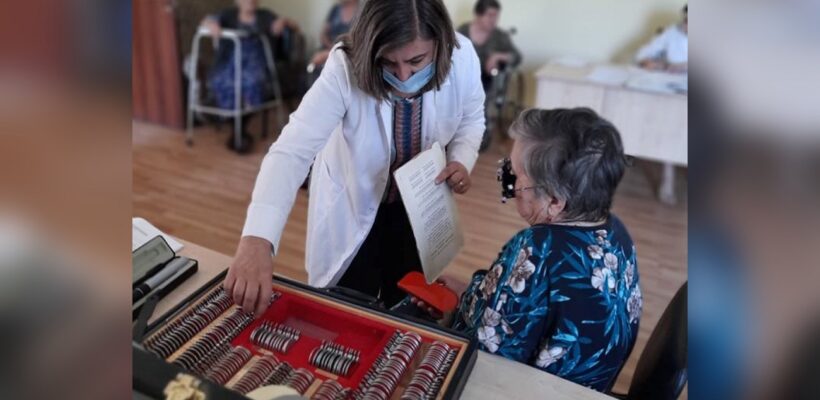
AUA’s Meghrigian Institute Publishes in the Journal of Disability and Rehabilitation
2 min readYEREVAN, Armenia — The American University of Armenia (AUA) Garo Meghrigian Institute for Preventive Ophthalmology (Meghrigian Institute) at the Avedisian Onanian Center for Health Services Research and Development (CHSR) of the Gerald & Patricia Turpanjian College of Health Sciences (CHS), published a new article titled “Factors associated with health-related quality of life among people with visual impairments living in nursing homes in Armenia: a cross-sectional study.” The research article appeared in the Journal of Disability and Rehabilitation, an international, highly regarded peer-reviewed journal that provides a platform for sharing and exchange of ideas among global health practitioners and researchers in an effort to encourage a better understanding of disability and promote rehabilitation science, practice, and policy.
The study was authored by Aida Giloyan (MPH ’07), M.S.; Tsovinar Harutyunyan (MPH ’99), Ph.D.; Ani Babayan M.D.; and Varduhi Petrosyan, M.S., Ph.D. The research examines the effect of visual impairment, eye diseases, and other factors on health-related quality of life in nursing home (տուն ինտերնատ) residents in Armenia.
The prevalence of normal vision was recorded at 55.3%, while visual impairment and blindness were prevalent in 40.8% and 3.9%, respectively. Uncorrected refractive error was found in 20% of participants. The mean health-related quality of life score was 51.3, varying from 7.9 to 95.0. Factors such as having at least one chronic non-communicable disease, experiencing sleep disorders, having eye diseases, uncorrected refractive error, visual impairment, and blindness were associated with poor health-related quality of life, as contrasted with instrumental social support being associated with better health-related quality of life in the target population.
The study underscores the potential advantage of providing regular eye care services to improve eye health and overall quality of life among nursing home residents. By addressing the challenges of vision loss and chronic non-communicable diseases, interventions have the capacity to enhance the functional status and well-being of the target population.
The AUA Turpanjian College of Health Sciences works actively to improve population health and health services in Armenia and the region through interdisciplinary education and development of health professionals to be leaders in public health, nursing, health services research and evaluation, and health care delivery and management.
